CSTA 2024: What happened in Las Vegas
About three weeks ago, a small team from the Raspberry Pi Foundation braved high temperatures and expensive coffees (and a scarcity of tea) to spend time with educators at the CSTA Annual Conference in Las Vegas.
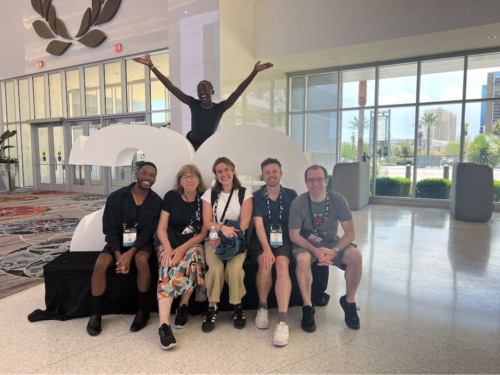
With thousands of attendees from across the US and beyond participating in engaging workshops, thought-provoking talks, and visiting the fantastic expo hall, the CSTA conference was an excellent opportunity for us to connect with and learn from educators.
Meeting educators & sharing resources
Our hope for the conference week was to meet and learn from as many different educators as possible, and we weren’t disappointed. We spoke with a wide variety of teachers, school administrators, and thought leaders about the progress, successes, and challenges of delivering successful computer science (CS) programs in the US (more on this soon). We connected and reconnected with so many educators at our stand, gave away loads of stickers… and we even gave away a Raspberry Pi Pico to one lucky winner each day.
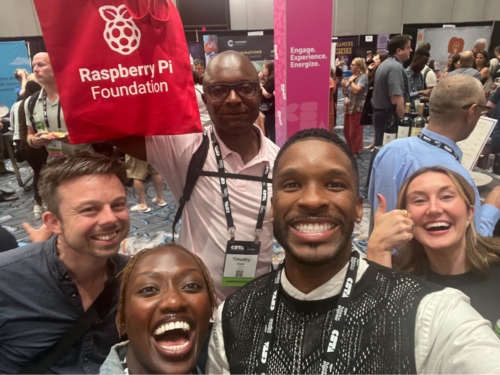
As well as learning from hundreds of educators throughout the week, we shared some of the ways in which the Foundation supports teachers to deliver effective CS education. Our team was on hand to answer questions about our wide range of free learning materials and programs to support educators and young people alike. We focused on sharing our projects site and all of the ways educators can use the site’s unique projects pathways in their classrooms. And of course we talked to educators about Code Club. It was awesome to hear from club leaders about the work their students accomplished, and many educators were eager to start a new club at their schools!
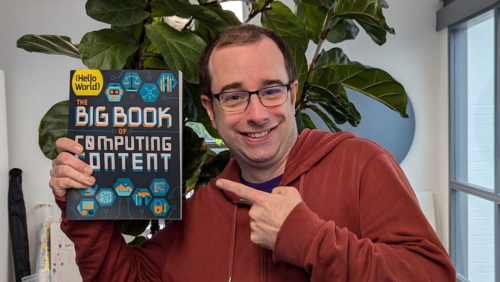
Back in 2022 at the last in-person CSTA conference, we had donated a copy of our first special edition of Hello World magazine, The Big Book of Computing Pedagogy, for every attendee. This time around, we donated copies of our follow-up special edition, The Big Book of Computing Content. Where the first Big Book focuses on how to teach computing, the second Big Book delves deep into what we teach as the subject of computing, laying it out in 11 content strands.
- If you weren’t able to get your hands on a copy of The Big Book of Computing Content, you can download yours for free.
- If you’d like to write about your teaching for Hello World, find out more and share your idea today.
Our talks about teaching (with) AI
One of the things that makes CSTA conferences so special is the fantastic range of talks, workshops, and other sessions running at and around the conference. We took the opportunity to share some of our work in flash talks and two full-length sessions.
One of the sessions was led by one of our Senior Learning Managers, Ben Garside, who gave a talk to a packed room on what we’ve learned from developing AI education resources for Experience AI. Ben shared insights we’ve gathered over the last two years and talked about the design principles behind the Experience AI resources.
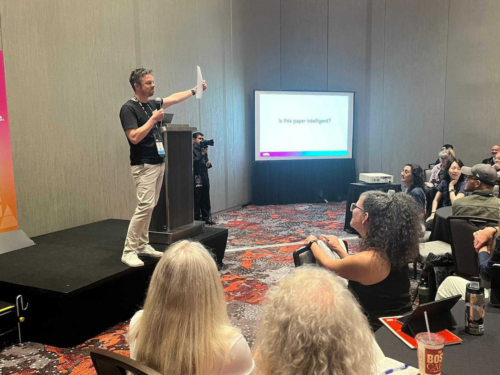
Being in the room for Ben’s talk, I was struck by two key takeaways:
- The issue of anthropomorphism, that is, projecting human-like characteristics onto artificial intelligence systems and other machines. This presents several risks and obstacles for young people trying to understand AI technology. In our teaching, we need to take care to avoid anthropomorphizing AI systems, and to help young people shift false conceptions they might bring into the classroom.
- Teaching about AI requires fostering a shift in thinking. When we teach traditional programming, we show learners that this is a rules-based, deterministic approach; meanwhile, AI systems based on machine learning are driven by data and statistical patterns. These two approaches and their outcomes are distinct (but often combined), and we need to help learners develop their understanding of the significant differences.
Our second session was led by Diane Dowling, another Senior Learning Manager at the Foundation. She shared some of the development work behind Ada Computer Science, our free platform providing educators and learners with a vast set of questions and content to help understand CS.
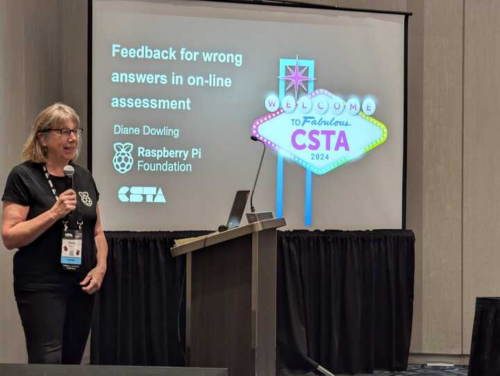
Recently, we’ve been experimenting with the use of a large language model (LLM) on Ada to provide assessment feedback on long-form questions. This led to a great conversation between Diane and the audience about the practicalities, risks, and implications of such feature.
More on what we learned from CSTA coming soon
We had a fantastic time with the educators in Vegas and are grateful to CSTA and their sponsors for the opportunity to meet and learn from so many different people. We’ll be sharing some of what we learned from the educators we spoke to in a future blog post, so watch this space.
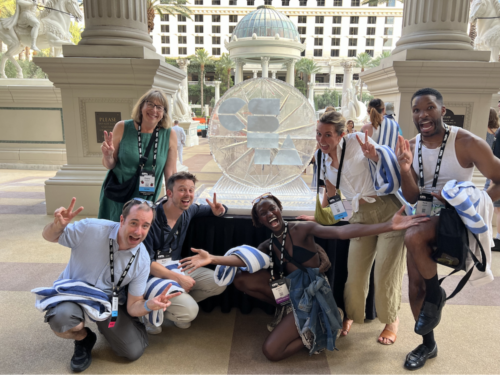


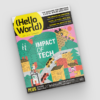
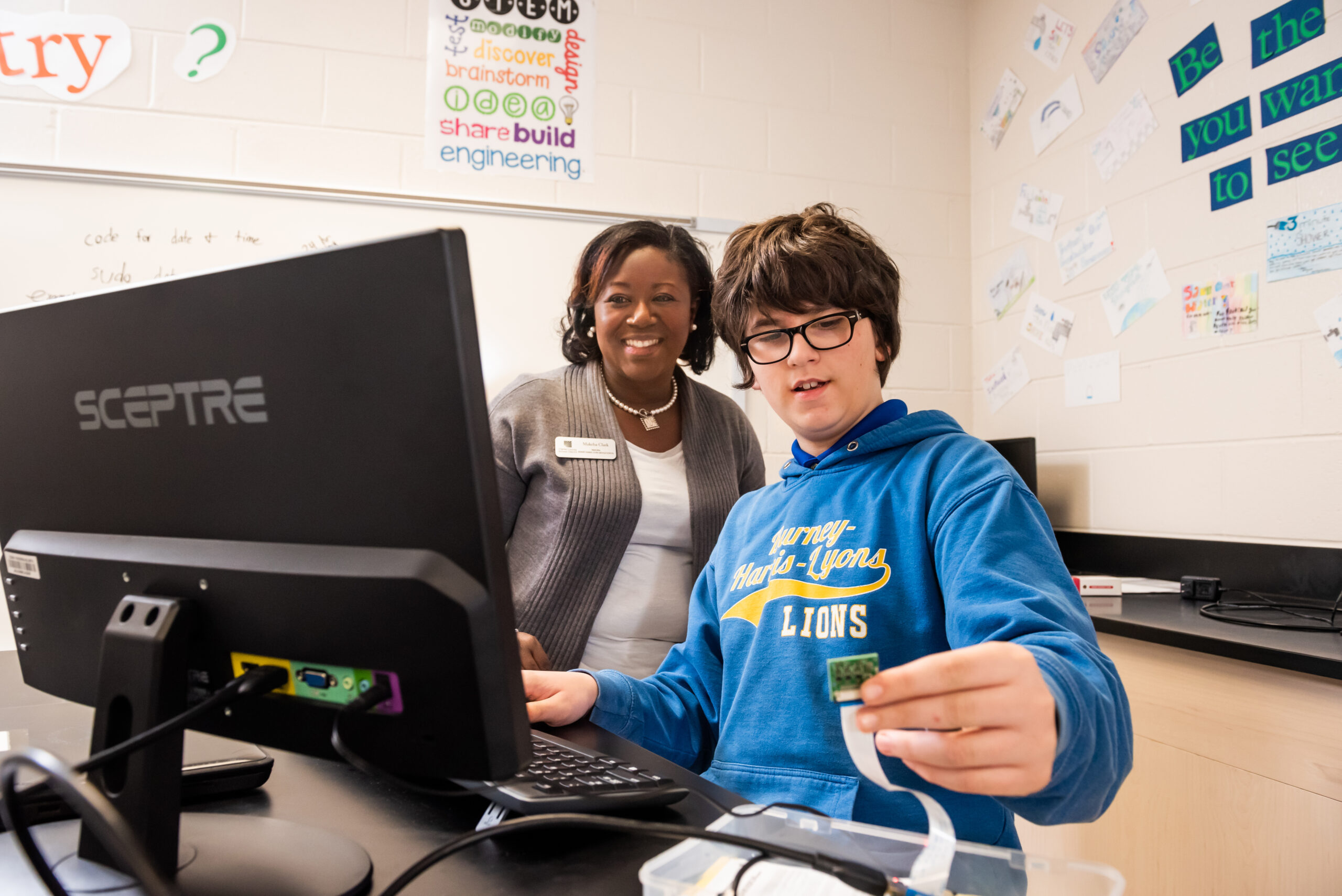

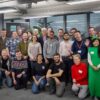
No comments